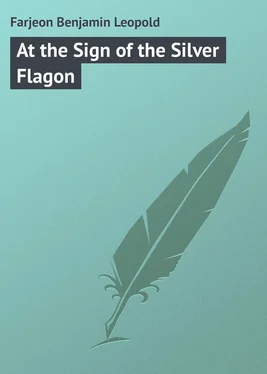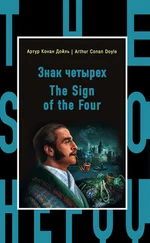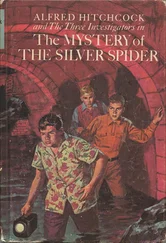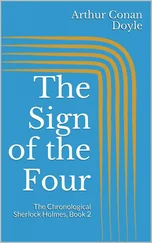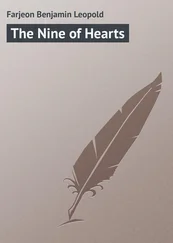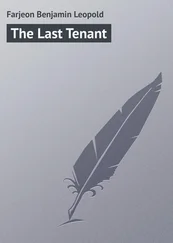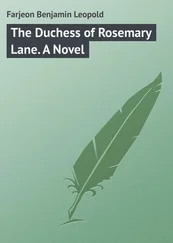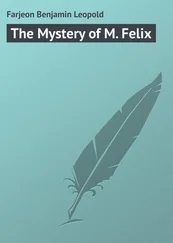Benjamin Farjeon - At the Sign of the Silver Flagon
Здесь есть возможность читать онлайн «Benjamin Farjeon - At the Sign of the Silver Flagon» — ознакомительный отрывок электронной книги совершенно бесплатно, а после прочтения отрывка купить полную версию. В некоторых случаях можно слушать аудио, скачать через торрент в формате fb2 и присутствует краткое содержание. Жанр: foreign_prose, на английском языке. Описание произведения, (предисловие) а так же отзывы посетителей доступны на портале библиотеки ЛибКат.
- Название:At the Sign of the Silver Flagon
- Автор:
- Жанр:
- Год:неизвестен
- ISBN:нет данных
- Рейтинг книги:5 / 5. Голосов: 1
-
Избранное:Добавить в избранное
- Отзывы:
-
Ваша оценка:
- 100
- 1
- 2
- 3
- 4
- 5
At the Sign of the Silver Flagon: краткое содержание, описание и аннотация
Предлагаем к чтению аннотацию, описание, краткое содержание или предисловие (зависит от того, что написал сам автор книги «At the Sign of the Silver Flagon»). Если вы не нашли необходимую информацию о книге — напишите в комментариях, мы постараемся отыскать её.
At the Sign of the Silver Flagon — читать онлайн ознакомительный отрывок
Ниже представлен текст книги, разбитый по страницам. Система сохранения места последней прочитанной страницы, позволяет с удобством читать онлайн бесплатно книгу «At the Sign of the Silver Flagon», без необходимости каждый раз заново искать на чём Вы остановились. Поставьте закладку, и сможете в любой момент перейти на страницу, на которой закончили чтение.
Интервал:
Закладка:
"To Margaret," responded Mr. Hart, "and happiness to you both."
"Another toast," said Philip; "to my old dad and the dear old Silver Flagon."
They drank the toast.
"What is the Silver Flagon?" asked Mr. Hart.
"One of these fine days perhaps I'll tell you," replied Philip.
But Philip never told him. One of these fine days Mr. Hart discovered for himself.
The light was out, and Mr. Hart knelt by a corner of his stretcher, and prayed for a few minutes. He was praying for his daughter, and thinking of her; he beheld her pretty face very plainly in the dark room. Philip saw the shadow of the kneeling man; it made him very tender towards Mr. Hart.
"Heathen that I am!" he whispered to himself. "I haven't knelt at my bedside for many a long month."
Then he prayed in silence, without getting out of bed.
"Are you comfortable, Philip?" asked Mr. Hart presently.
"I am very happy," replied Philip. "Good night-God bless you."
"And you, my boy. Good night."
Philip thought, "I am glad my Margaret has had such a protector. God bless everybody."
The next moment he was asleep.
He was up an hour after the sun, and off to his reef. Things were looking well there. Mr. Hart had spoken to the proprietor of the Rose, Shamrock, and Thistle, whose name, by the way, as something has to be said concerning him, it may be as well to mention. You will have heard it before-it was Smith. Mr. Hart had spoken to Mr. Smith about Philip's reef, and showed him some pieces of golden quartz, saying what a pity it was that there was no crushing-machine near such rich stone; and what a fortune a man might make who had money and enterprise enough to erect one. Mr. Smith had both. Four years ago- But no, common as his name is he deserves a chapter to himself, and shall have it.
CHAPTER IX
A MAN OF METTLE
Not longer than four years ago, Mr. Smith was a bricklayer in the old country, earning an average wage of thirty shillings a week, out of which he supported himself and his old mother; and one day, for want of something better to do-he was out of work at the time-he emigrated almost by accident. This is a literal fact. He arose early in the morning, with no intention of leaving the country, but somewhat sad at heart because he had no work to do. (When he related the story in after days he said that his hands felt like lumps of lead as they hung by his side.) On this morning, then, he strolled to the London Docks, and saw a ship making ready to start for Australia; was told that it would sail for Gravesend in the afternoon; idly inquired the price of a steerage passage, and found that he had just money enough in his pocket, and a trifle over, the scrapings and savings of ten years' bricklaying; and had a chat with an enthusiast, who painted Australia in the colours of the rainbow, and then painted England in ditch colours.
"What is the use of wearing one's life away in such a country as this?" demanded the enthusiast. "What has a man got to look forward to when he's old, and not fit to work?"
Mr. Smith considered. What was the use of grinding one's life away in such a country as England? What was there to look forward to, to hope for, to work for? A poor man's grave. Perhaps a pauper's funeral. Born a bricklayer, died a bricklayer; that might be his epitaph, if he left money enough to pay for one.
"Australia's the place for such men as us," continued the enthusiast. "Australia's the land of gold, and milk, and honey. England's no country for men of spirit; it's used up, sir-used up. And there's the new land waiting to make poor men rich-holding out its arms for them."
"I should like to go with you," said Smith.
"Come, then," said the enthusiast.
"I'm afraid there's not time," said Smith; "there's my old mother. I couldn't leave without saying good-bye to her."
"What's your name?" asked the enthusiast.
"Smith," replied Smith.
The enthusiast gave a start, and uttered an exclamation.
"What's the matter?" asked Smith.
"Nothing," said the enthusiast; "only I was thinking that I should like you to come."
"But how is it to be managed?" inquired Smith, glancing at the name of the vessel, with his mouth watering. It was a nine-hundred-ton ship, called the Gold Packet. "But how is it to be managed? A man that I know emigrated a year ago, and he had to buy bedding, and tin cups, and soap and towels, and I don't know what else; those things ain't got by whistling for them."
"I'll manage it for you," said the enthusiast. "You go home and say good-bye to your mother. Be back here at one o'clock. By that time I'll have your passage-ticket, and your berth, and bedding, and tin cups, and soap and towels, and everything else ready for you. What do you say?"
"What do I say? There's my hand upon it, and thank you. I'll do it."
And with quickened pulses he hastened home, kissed the amazed old woman-who was so dumbfoundered that she could do nothing but look at her son, and cry-promised to send her plenty of money from Australia and to make a lady of her in five years, and was back to the Gold Packet at one o'clock.
"You're a man of mettle," said the enthusiast; "you're just the sort for the gold-diggings; it's such men as you they want. You'll make your fortune there as sure as eggs are eggs. Here's your ticket. Come down-stairs; I'll show you your berth and things."
"How much does it all come to?" asked Smith. The enthusiast pencilled some figures on a piece of paper, and gave it to Smith, who looked at the items, and added them up. Everything was correct; he handed the enthusiast the money, and had exactly two shillings and fourpence left to conquer the new world with. Smith went down-stairs (to speak courteously of the descent; but there are worse, we are taught) into the den where the steerage passengers were packed, and the enthusiast showed him his berth, his bedding, his tin cups, his bar of yellow soap, and other necessary paraphernalia. The enthusiast showed these things to Smith, but Smith could scarcely see them, the place was so dark. Smith was not daunted because the place was dismal, and because it was filled with women crying, and children screaming, and men growling-a very pit of discomfort. His soul rose to the occasion; he had a spirit above a bricklayer's; with his passage ticket in his hand, and two shillings and fourpence in his pocket, he felt himself a king. There was work before him to do, and he was happy in the prospect of no more idle days. When he went on to the deck he did not see the enthusiast, but he did not miss him, he was so interested in what was going on about him, the hurrying to and fro, the shouting, the singing of the sailors, the loosening of the sails, the hauling of ropes. In an hour the ship was off, winding its way through such a complicated labyrinth of boats and ships and ropes, that the wonder was how it disentangled itself safely. Smith watched the manœuvres with admiration. Then he glanced at the passage ticket. "Holloa!" he said, "they've made a mistake in my Christian name. I'm William Smith, not John."
(Let me mention here, briefly, that our Smith never set eyes again on the enthusiast, whose name was also Smith, prefixed by John. It was his passage ticket, indeed, that our Smith held in his hand. All the time he had been painting in the most glowing colours the glowing attractions of the goldfields on the other side of the world, he had been filled with the most gloomy forebodings. His courage had failed him at the last moment, and seizing the opportunity which had so fortunately presented itself of giving the new world another Smith instead of himself, he had sold his passage ticket and bedding and cooking utensils to the bricklayer, and after receiving the money for them, bade good-bye to the Gold Packet and all the fair promises it held out.)
Читать дальшеИнтервал:
Закладка:
Похожие книги на «At the Sign of the Silver Flagon»
Представляем Вашему вниманию похожие книги на «At the Sign of the Silver Flagon» списком для выбора. Мы отобрали схожую по названию и смыслу литературу в надежде предоставить читателям больше вариантов отыскать новые, интересные, ещё непрочитанные произведения.
Обсуждение, отзывы о книге «At the Sign of the Silver Flagon» и просто собственные мнения читателей. Оставьте ваши комментарии, напишите, что Вы думаете о произведении, его смысле или главных героях. Укажите что конкретно понравилось, а что нет, и почему Вы так считаете.
